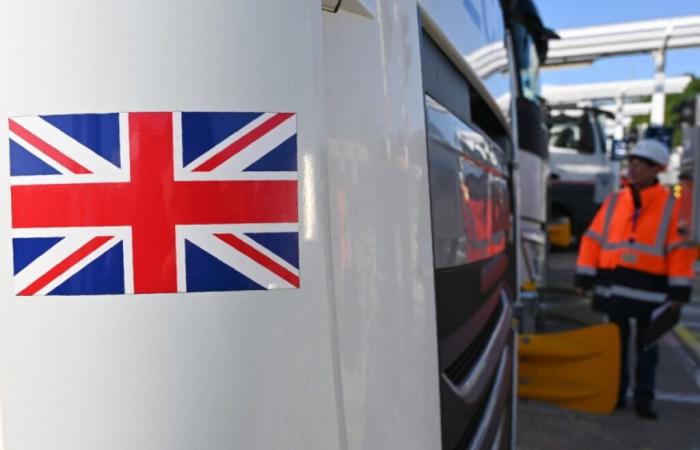
New accounting techniques, coupled with clear trends in imports, are reducing the trade balance between the French economy and its British neighbor.
(illustration) (POOL / DENIS CHARLET)
France's trade surplus with the United Kingdom fell by almost 20% between 2018 and 2023, according to a study by the Directorate General of Customs published Friday, December 27, which attributes “most of the deterioration” to a change in accounting linked to Brexit.
The trade balance fell by 2.5 billion euros between 2018, the year taken as a reference before Brexit and the Covid crisis, and 2023, to stand at 9.6 billion euros.
The trade surplus with the United Kingdom remained the first trade surplus recorded by France in the world, in 2018 and in 2023.
France, “hub” to the rest of Europe
The exit of the United Kingdom from the European Union (EU) on January 31, 2020, then from the customs territory the following year, forced most European companies importing British products to pay customs duties.
Therefore,
many goods cross the Channel to be “cleared” in France before being re-exported to another EU country.
This is what experts call “import quasi-transit flows”.
“The appearance of these quasi-transit trade flows, unaccounted for before Brexit, increases imports originating in the United Kingdom, and can explain most of the deterioration in the balance,” estimates the report.
On all products exchanged,
imports (+5.5 billion euros) increased faster than exports (+3.0 billion euros).
This “hub” effect of France, combined with
“dynamism” of imports of British lamb, salmon and cheddar,
has particularly weighed on the balance of the agri-food industries, supports the study.
The balance of manufactured products also suffered, weighed down by French exports of jewelry and jewelry at half mast.
On the other hand, the transport equipment sectors – mainly aeronautics and automobiles – and machinery have survived, driven by French sales of planes, turbojets, cars and trucks. These developments take place in a context where London has redirected its trade towards countries outside the EU.
“Overall foreign trade has lost intensity between the United Kingdom on the one hand and the European Union (EU) on the other. Since Brexit, the United Kingdom has become more focused on the rest of the world,” describes the report.
The EU's share of UK imports has fallen from 52 to 40% in five years,
while that of China and the United States both increased, from 9% to 13% for Beijing and from 9% to 12% for Washington.





